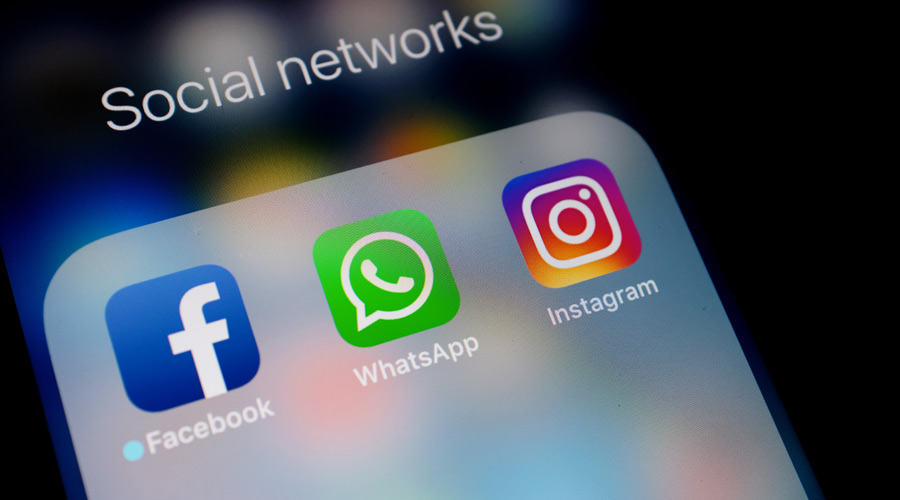Facebook and its family of apps, including Instagram and WhatsApp, were inaccessible for hours on Monday, taking out a vital communications platform used by billions and showcasing just how dependent the world has become on a company that is under intense scrutiny.
Facebook’s apps — which include Facebook, Instagram, WhatsApp, Messenger and Oculus — began displaying error messages around 11:40am Eastern time, users reported. Within minutes, Facebook had disappeared from the Internet. The outage lasted over five hours, before some apps slowly flickered back to life, though the company cautioned the services would take time to stabilise.
Even so, the impact was far-reaching and severe. Facebook has built itself into a lynchpin platform with messaging, livestreaming, virtual reality and many other digital services.
In some countries, like Myanmar and India, Facebook is synonymous with the Internet. More than 3.5 billion people around the world use Facebook, Instagram, Messenger and WhatsApp to communicate with friends and family, distribute political messaging, and expand their businesses through advertising and outreach.
Facebook is also used to sign in to many other apps and services, leading to unexpected domino effects such as people not being able to log into shopping websites or sign into their smart TVs, thermostats and other Internet-connected devices. Technology outages are not uncommon, but to have so many apps go dark from the world’s largest social media company at the same time was highly unusual. Facebook’s last significant outage was in 2019, when a technical error affected its sites for 24 hours, in a reminder that a snafu can cripple even the most powerful Internet companies.
This time, Facebook said late on Monday, the culprit was changes to its underlying Internet infrastructure that coordinates the traffic between its data centres. That interrupted communications and cascaded to other data centres, the company said.
Facebook eventually restored service after a team got access to its server computers at a data centre in Santa Clara, California, three people with knowledge of the matter said. Then they were able to reset them. The company apologised for the outage. “We’re sorry,” it said on Twitter after its apps started becoming accessible again. “Thank you for bearing with us.”
The outage added to Facebook’s mounting difficulties. For weeks, the company has been under fire related to a whistle-blower, Frances Haugen, a former Facebook product manager who amassed thousands of pages of internal research. She has since distributed it to the news media, lawmakers and regulators, revealing that Facebook knew of many harms that its services were causing, including that Instagram made teenage girls feel worse about themselves.
The revelations have prompted an outcry among regulators, lawmakers and the public. Haugen, who revealed her identity on Sunday online and on 60 Minutes, is scheduled to testify in Congress about Facebook’s impact on young users.
“Today’s outage brought our reliance on Facebook — and its properties like WhatsApp and Instagram — into sharp relief,” said Brooke Erin Duffy, a professor of communications at Cornell University. “The abruptness of today’s outage highlights the staggering level of precarity that structures our increasingly digitally mediated work economy.”
When the outage began on Monday morning, Facebook and Instagram users quickly turned to Twitter to lament and poke fun at their inability to use the apps. The hashtag #facebookdown also started trending.
New York Times News Service











